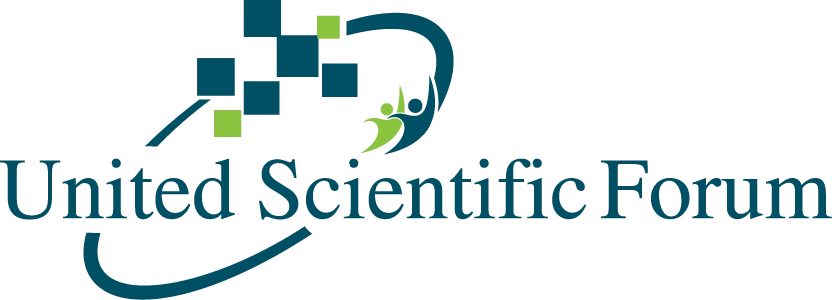Conference Sessions
Dive into the foundational principles of neuroscience and clinical neurology, exploring how brain structure relates to function. This session covers topics such as neuronal communication, brain mapping, and neurological disease mechanisms. Learn how discoveries in basic science are being translated into diagnostic tools and treatments. Ideal for researchers, clinicians, and healthcare professionals working in neuro-related fields.
Focus on the structure, function, and disorders of the brain and spinal cord that make up the central nervous system. Discover the latest advances in diagnosing and managing conditions such as multiple sclerosis, stroke, and spinal cord injuries. Experts will discuss cutting-edge imaging, therapeutic strategies, and regenerative medicine. Case studies highlight real-world treatment outcomes and ongoing research.
Explore how disruptions in brain function can lead to psychiatric disorders such as depression, anxiety, and schizophrenia. This session bridges psychiatry and neurology to uncover the neurobiological basis of mental illness. Learn about biomarkers, neuroimaging findings, and emerging pharmacological and behavioral treatments. Discussions will include both adult and adolescent psychiatric case studies.
Investigate the neural mechanisms behind learning, memory, perception, and decision-making. This session examines how brain networks govern behavior and how these processes are altered in neurological disorders. Topics include cognitive aging, brain plasticity, and behavioral therapy. Great for professionals interested in the intersection of mind, brain, and behavior.
Learn how drugs and hormones interact with the nervous system to influence behavior and neurological function. Topics include neurotransmitter systems, psychotropic medications, and hormonal regulation of the brain. Discussions will cover both therapeutic applications and potential side effects. Ideal for researchers, pharmacologists, and clinical practitioners.
This session explores the diagnosis and treatment of brain and spinal cord tumors, including glioblastomas and meningiomas. Learn about the molecular biology of brain cancers, surgical advances, and novel therapies like immunotherapy and precision medicine. Experts will share clinical trial data, imaging techniques, and patient care strategies. A must-attend for neurosurgeons, oncologists, and neuroscience researchers.
Gain insights into a wide range of neurological disorders, including epilepsy, Parkinson’s disease, ALS, and traumatic brain injuries. The session covers diagnostic tools, genetic insights, and emerging therapies for managing these complex conditions. Clinicians and researchers will share approaches for improving patient outcomes. Emphasis will be placed on both chronic and acute neurological conditions.
Understand the neurological effects of aging and explore the latest research on Alzheimer’s disease and other dementias. Topics include early diagnosis using biomarkers, cognitive decline prevention, and therapeutic interventions. Learn how lifestyle, genetics, and neuroinflammation contribute to neurodegeneration. Aimed at professionals focused on geriatric neurology and cognitive health.
Explore advancements in surgical techniques for treating disorders of the brain, spine, and peripheral nerves. Topics include minimally invasive spine surgery, neuro-navigation, and postoperative recovery strategies. Experts will discuss innovations in tumor resection, spinal cord injury repair, and surgical robotics. Aimed at neurosurgeons, orthopedic specialists, and neurorehabilitation professionals.
This session delves into psychological theory, mental health disorders, and therapeutic practices. Topics include mood and anxiety disorders, personality assessment, and evidence-based counseling approaches. Learn how neuroscience informs psychotherapy and the use of digital tools in mental health care. Designed for psychologists, counselors, and behavioral health practitioners.
Understand how acute and chronic stress impact brain function, behavior, and emotional well-being. Sessions cover trauma-informed care, resilience-building strategies, and PTSD treatment innovations. Discover the neurobiological pathways of stress and their long-term effects on health. Ideal for clinicians working with trauma survivors and vulnerable populations.
Focus on psychiatric and developmental disorders affecting children and adolescents, including ADHD, autism, and mood disorders. Learn about early intervention strategies, behavioral therapies, and medication management. Case discussions will highlight the importance of school support systems and family involvement. Perfect for child psychiatrists, pediatricians, and developmental psychologists.
Examine how COVID-19 has affected the nervous system, leading to long-term complications such as brain fog, stroke, and neuropathy. Experts will present findings on post-viral syndromes, neuroinflammation, and rehabilitation strategies. Topics include pediatric and adult cases, as well as the role of neuroimaging in post-COVID assessment. Critical for neurologists and rehabilitation teams addressing pandemic-era challenges.
Explore cutting-edge research and real-world clinical case studies that are shaping the future of neuroscience and mental health care. This session highlights novel findings in neurobiology, psychiatric treatment, and neurodevelopmental disorders. Presenters will share diagnostic challenges, therapeutic breakthroughs, and patient outcomes. Ideal for clinicians, researchers, and students seeking applied knowledge in brain science.
Learn about neurological disorders affecting infants, children, and adolescents, from epilepsy and cerebral palsy to neurogenetic syndromes. This session covers early diagnosis, treatment advances, and developmental monitoring. Experts will share clinical guidelines and real-life pediatric case studies. A valuable session for neurologists, pediatricians, and developmental specialists.
Discover how advanced imaging techniques like MRI, fMRI, PET, and CT are transforming the diagnosis and understanding of brain disorders. This session focuses on structural and functional imaging in epilepsy, tumors, dementia, and psychiatric conditions. Presenters will showcase real clinical cases and discuss interpretation challenges. A key session for radiologists, neurologists, and cognitive scientists.


